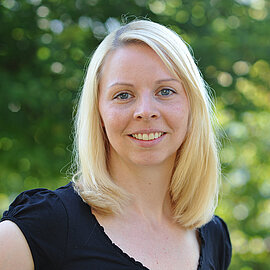China has one of the lowest levels of water availability per capita of any country. It regularly suffers from severe droughts, while increasing urbanisation is pushing up demand for water in the cities. In the semi-arid North China Plain alone there are 440 million inhabitants who only have 462 m³ of water per capita per annum at their disposal – that is less than half of what the United Nations defines as the water scarcity threshold. Water consumption in industry and private households is increasing constantly. In China food production to ensure food security (with a 95% degree of self-sufficiency) is of essential strategic importance. Consequently, agriculture is traditionally the economic sector with the highest water consumption, while simultaneously displaying very low utilisation rates of often less than 1 kg of grain yield per m³ of water. In addition, agriculture is one of the main causes of ground and surface water pollution.
In 2015 China published its National Action Plan for the Prevention and Control of Water Pollution. The intensifying conflicts over water use between sectors and regions as a result of increasing water demand in all areas also calls for China’s agriculture to adopt new strategies in the direction of a more sustainable use of this scarce commodity. More efficient irrigation technologies will play a central role here. A second strategy consists of the transition to water-saving crop sequences, breeding measures for the introduction of plant varieties will low water needs, greater resistance to drought, and a higher salt tolerance. Finally, there are the measures for reducing the negative effects of agriculture on surface and ground water due to waste from animal husbandry as well as the use of fertilizer and pesticides. All the strategies are accompanied by a greater emphasis on more sustainable agricultural production methods on the part of the Chinese government as well as higher expectations in terms of product quality on the part of consumers.
The expert podium composed of Chinese and German representatives from science, politics, business, and non-governmental organisations discussed the potential and risks of these three strategies from different perspectives while referring to examples from current praxis.
PROGRAM
Welcome
Torsten Weber, Member of the Board OAV; CEO REMONDIS International GmbH
Opening address
Friedrich Wacker, Deputy Director General, Department of International Cooperation, Federal Ministry of Food and Agriculture (BMEL)
Tang Shengyao, Deputy Director General, Department of International Cooperation, Ministry of Agriculture PR China (MoA)
Host
Prof. Dr. Thomas Herzfeld, Director, Leibniz Institute of Agricultural Development in Transition Economies (IAMO)
Panel discussion
Prof. Dr. Mei Xurong, Director General Department Research Management, Chinese Academy of Agricultural Sciences (CAAS)
Dr. Josef Bosch, Managing Director, Farm Facts GmbH (a BayWa company)
Prof. Dr. Qu Wei, Lanzhou University
Prof. Dr. Markus Disse, Chair Hydrology and River Basin Management, Technical University Munich
Zhang Haijiang, Project Officer, The Nature Conservancy
Simultaneous interpretation in German, English and Chinese language will be provided.
Global Forum for Food and Agriculture (GFFA) 2017
‘Agriculture and Water - Key to Feeding the World’
19 - 21 January 2017 ǀ Berlin | Germany


